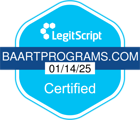Opioid painkillers, also called opiates, are narcotic pain-relieving drugs such as morphine, Dilaudid and hydrocodone. These drugs provide effective pain relief when they’re taken as instructed by a doctor. But the euphoria and calm feeling that opiates create are habit-forming, and they can result in patients abusing these drugs.
Opioid painkiller abuse occurs when a patient takes a larger quantity of the medication or takes it more often than prescribed by the doctor. If this abuse continues, it can cause addiction, which is not easy to conquer without appropriate treatment. That’s why it’s important to know how to tell if someone might be addicted to opioids. If you discover that your loved one is battling with over-dependence on opiates, then you need to seek help immediately before the situation deteriorates.
What Are the Warning Signs of an Opioid Addiction?
Detecting the early warning signs of drug abuse is the best way to prevent a person from becoming addicted to opiates. There are different behavioral and physical signs to look out for including:
- Withdrawal from social and recreational activities
- Restricting family members from coming into their room
- Engaging in dangerous activities like driving under the influence
- Sudden mood swings that seem out of place
- Finding it difficult to stay awake and falling asleep at odd times
- Needle marks on arms or legs because of injections
- Making impulsive decisions
- Going to different doctors to get more prescriptions
Once you detect a substance use disorder, you should seek support promptly. It’s possible to overcome this addictive habit by seeking medical help and reducing the prescription. But those who have already become addicted may need intensive care through an outpatient medication-assisted recovery program or an inpatient rehabilitation facility.
How People Develop Opioid Abuse
While most people who use opioid painkillers obtain them legally through their doctor’s prescription, others can steal or borrow pills, capsules or oral solutions from friends or family members. Taking another person’s medication is illegal, and it’s a form of abuse.
Anyone who is misusing painkillers may try different methods of intake to get the most satisfying effect. For example, the tablets may be crushed and snorted, or powders can be turned into liquid form and injected into the veins with a syringe.
Injecting or snorting opioids can provide an instant high with an intense feeling that can’t be obtained by taking the pills as prescribed. Unfortunately, this sudden inflow of opiates into the body can cause respiratory failure and other complications.
Opiate Withdrawal Help
It’s possible to break free from addiction to opioid painkillers. You can seek help through a medication-assisted treatment program. This type of program provides assistance with handling withdrawal symptoms for anyone who is dependent on opioids. It involves the controlled use of opioids like methadone that can help the patient regain control over their desire for drug use.
Contact Your Local BAART Program Center Today
If you or your loved one needs help overcoming opioid drug abuse, contact us immediately by calling 844.341.4040 or by completing the contact form on our website. We’ll use a medication-assisted recovery program to help you or your loved one recover from opioid drug addiction while mitigating withdrawal symptoms.



